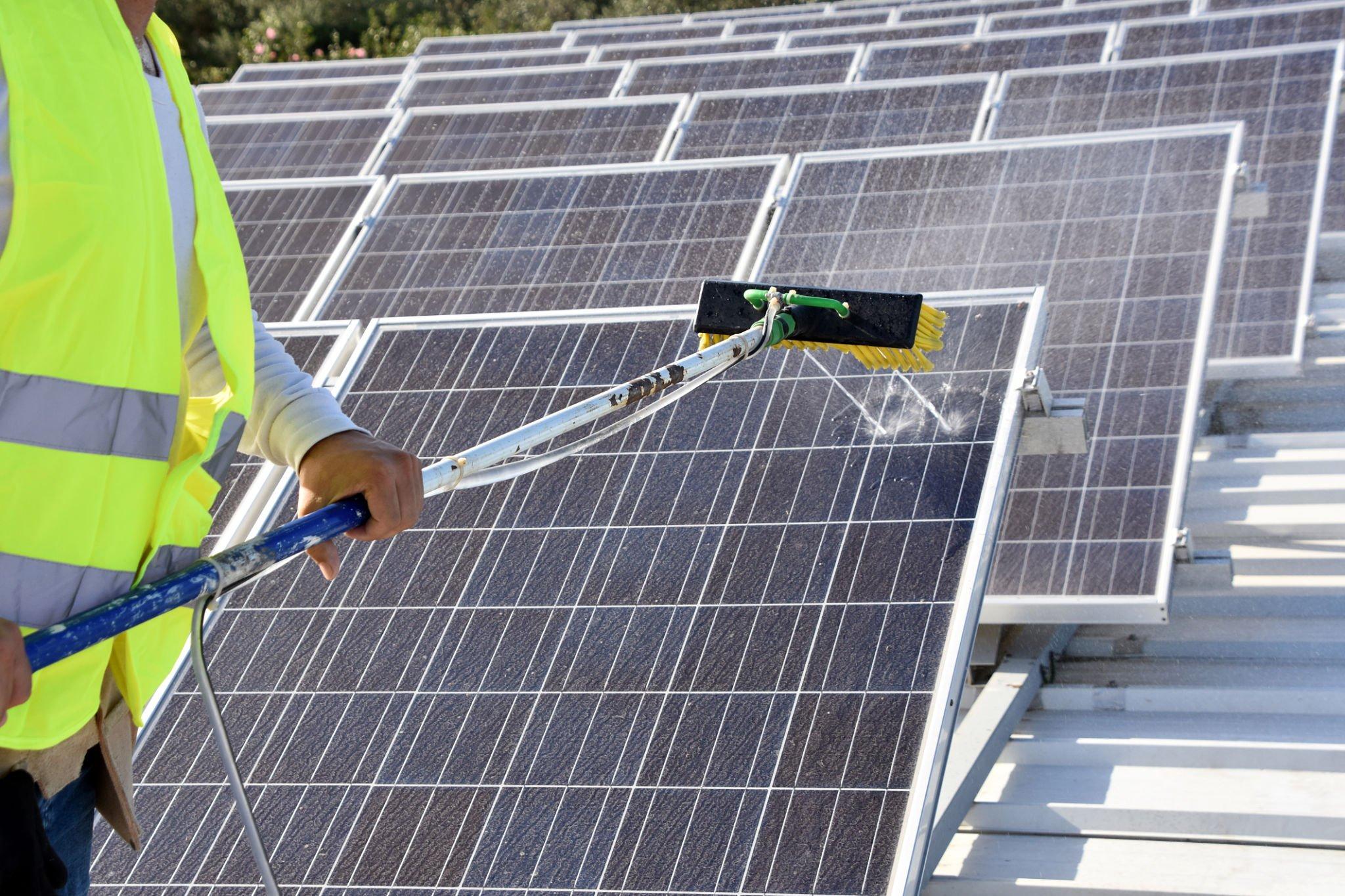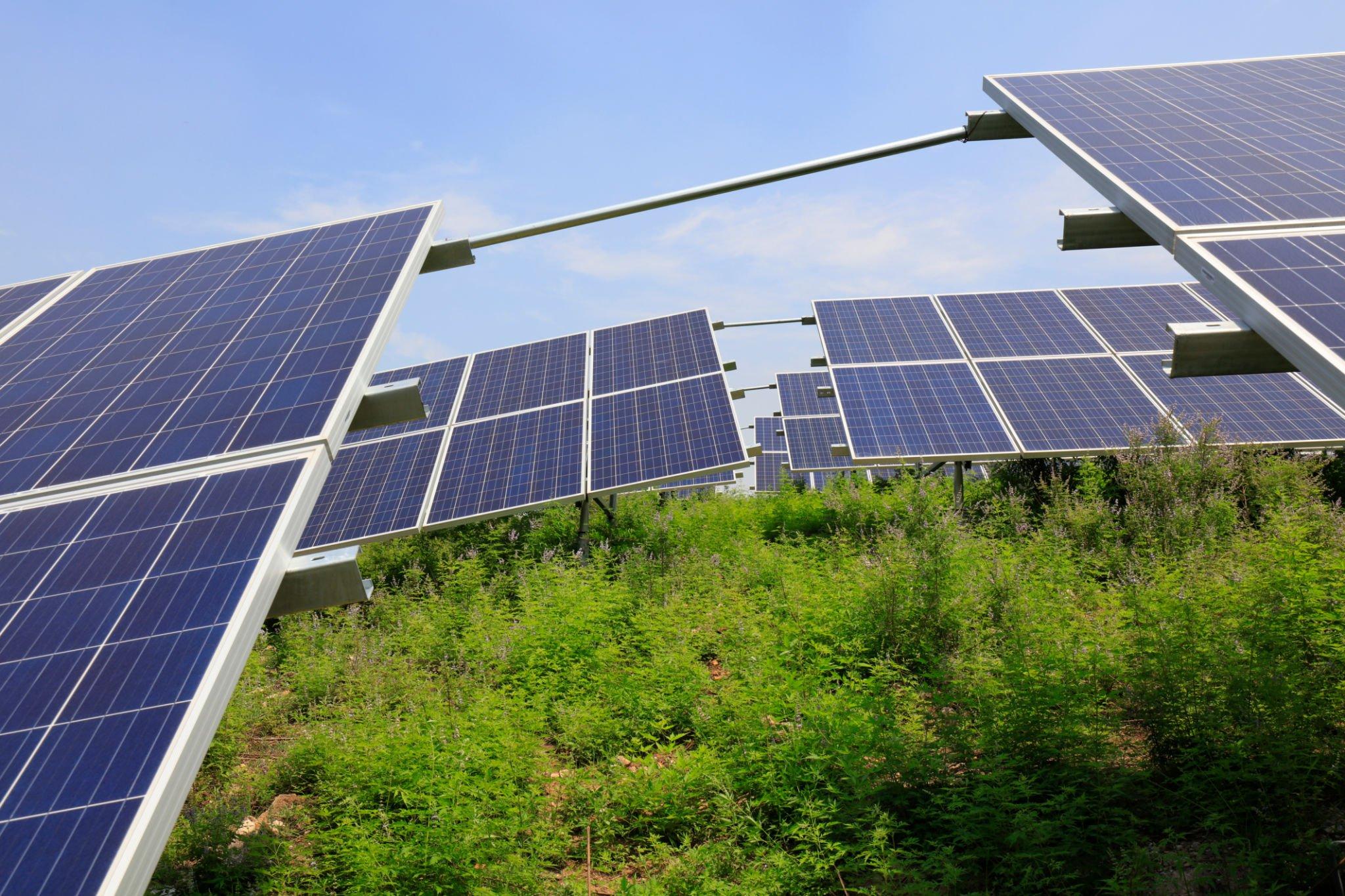
Solar Energy: Paving the Way for a Resilient Future
In an era of increasing environmental concerns and the need for energy resilience, solar power stands as a beacon of hope and a pathway to a more resilient future. As a leading solar module and cell manufacturer, Fellow Energy is dedicated to advancing the adoption of solar energy and strengthening the resilience of communities and businesses. Let’s explore how solar energy is paving the way for a resilient future:
Enhanced Energy Resilience: Traditional power grids are vulnerable to disruptions caused by natural disasters, cyber-attacks, and infrastructure failures. Solar energy, particularly when combined with energy storage systems, offers a decentralized and resilient energy solution. By generating electricity on-site and storing excess energy, solar-powered systems can continue to provide electricity during grid outages, ensuring continuity of essential services.
Emergency Preparedness: Solar energy plays a vital role in emergency preparedness. In the aftermath of natural disasters, access to electricity is critical for communication, medical services, and rescue operations. Solar-powered systems can be quickly deployed to affected areas, providing a reliable source of electricity independent of damaged or inaccessible power grids. This allows communities to recover and rebuild more effectively.
Long-Term Cost Stability: Solar energy offers long-term cost stability, shielding businesses and individuals from the price volatility of fossil fuel-based electricity. By investing in solar power, businesses can reduce their exposure to rising energy costs, enabling better financial planning and budgeting. This stability strengthens their overall resilience and allows for strategic allocation of resources.
Community Empowerment: Solar energy empowers communities by enabling local energy production and reducing dependence on external energy sources. This localized approach enhances community resilience by fostering self-sufficiency and economic independence. Community solar projects, where multiple participants share the benefits of a solar installation, promote inclusivity and ensure access to clean energy for all.
Climate Change Adaptation: Climate change poses significant challenges, including extreme weather events, rising temperatures, and changing rainfall patterns. Solar energy offers a sustainable solution that mitigates the environmental impact of energy generation. By transitioning to solar power, we can reduce greenhouse gas emissions and contribute to climate change adaptation efforts, creating a more resilient and sustainable future.
Collaboration and Partnerships: Building resilience requires collaboration and partnerships across various sectors. Fellow Energy actively collaborates with governments, businesses, and communities to develop customized solar solutions that address specific resilience needs. By pooling our expertise and resources, we can create a resilient energy infrastructure that withstands challenges and drives sustainable growth.
At Fellow Energy, we are proud to be a part of the solar energy revolution that fosters resilience and empowers communities. Through our innovative solar modules and cells, we aim to build a more resilient future where clean energy powers progress, safeguards the environment, and ensures a brighter tomorrow.
Other News
DATA PROTECTION
WEBSITE COOKIE POLICY
Protecting the privacy of visitors to the website operated by Fellow Energy at (www.fellowsolarenergy.com) is one of our organization’s fundamental principles. This Cookie Usage Policy (“Policy”) explains the types of cookies used and their conditions to all website visitors and users.
Cookies are small text files stored on your computer or mobile device by the websites you visit.
They are commonly used to provide you with a personalized experience while using a website, improve the services offered, and enhance your browsing experience. If you prefer not to use cookies, you can delete or block them through your browser settings. However, please note that this may affect your use of our website. Unless you change your cookie settings in your browser, we will assume that you have accepted the use of cookies on this site.
1. WHAT KIND OF DATA IS PROCESSED IN COOKIES?
Cookies on websites collect data related to your browsing and usage preferences on the device you use to visit the site, depending on the type. This data includes information about the pages you access, the services and products you review, your preferred language selection, and other preferences.
2. WHAT ARE COOKIES AND WHAT ARE THEIR PURPOSES?
Cookies are small text files stored on your device or server by websites you visit through browsers. These small text files, which include your preferred language and other settings, help remember your preferences for your next visit to the site and aid us in making improvements to our services to enhance your experience. This allows you to have a better and personalized user experience during your next visit.
The main purposes of using cookies on our website are listed below:
- To improve the functionality and performance of the website to enhance the services provided to you,
- To enhance the website and offer new features through the website, personalized according to your preferences;
- To ensure the legal and commercial security of the Website, you, and the Institution, and prevent fraudulent transactions through the Site;
- To fulfill legal and contractual obligations, including but not limited to those arising from the Law No. 5651 on the Regulation of Publications Made on the Internet and Combatting Crimes Committed through These Publications and the Regulation on the Procedures and Principles Regarding the Regulation of Publications Made on the Internet.
3. TYPES OF COOKIES USED ON OUR WEBSITE
3.1. Session Cookies
Session cookies ensure the proper functioning of the website during your visit. They are used for purposes such as ensuring the security and continuity of our sites and your visit. Session cookies are temporary cookies that are deleted when you close your browser, and they are not permanent.
3.2. Persistent Cookies
These cookies are used to remember your preferences and are stored on your device through browsers. Persistent cookies remain even after you close your browser or restart your computer. These cookies are stored in your browser’s subfolders until they are deleted from your browser settings.
Some types of persistent cookies can be used to offer personalized recommendations based on your purpose of using the Internet Site.
Persistent cookies allow us to determine if a cookie created by our Internet Site exists on your device when you visit our Internet Site again with the same device. If it exists, we understand that you have previously visited the site, and the content that will be delivered to you is determined accordingly, thus providing you with better service.
3.3. Necessary/Technical Cookies
These are essential cookies for the proper functioning of the visited website, ensuring necessary services by allowing access to secure sections of the website, using its features, and navigating through it.
3.4. Analytical Cookies
These cookies collect information about how the website is used, including the frequency and number of visits, and show how visitors arrive at the site. The purpose of using these cookies is to improve the functioning of the website, enhance performance, and determine general trends. They do not contain data that can identify visitors. For example, they may show the number of error messages displayed or the most visited pages.
3.5. Functional Cookies
These cookies remember the choices made by visitors within the site, ensuring convenience for the next visit. The purpose of these cookies is to provide ease of use for visitors. For instance, they prevent the need for the site user to re-enter their password on each page they visit.
3.6. Targeting/Advertising Cookies
They measure the effectiveness of the displayed advertisements and calculate how many times advertisements are viewed. These cookies aim to present personalized advertisements according to the interests of visitors.
Likewise, they identify specific interests in the navigation of visitors and present suitable content. For instance, they prevent the same ad from being shown to a visitor in a short period.
4. HOW TO MANAGE COOKIE PREFERENCES?
You can change your preferences regarding cookie usage, block or delete cookies by changing your browser settings.
Many browsers offer options to accept or reject cookies, accept only certain types of cookies, or receive a warning from the browser when a website requests to store cookies on your device.
Furthermore, it is possible to delete previously stored cookies from your browser.
If you disable or reject cookies, you may need to manually adjust certain preferences, and some features and services on the website may not function properly as we won’t be able to recognize and associate your account. You can change your browser settings by clicking on the relevant link from the table below.
5. EFFECTIVENESS OF THE WEBSITE PRIVACY POLICY
The Internet Site Privacy Policy is dated 15/08/2023. If the entire Policy or specific articles are renewed, the effective date of the Policy will be updated. The Privacy Policy is published on the Institution’s website (www.fellowsolarenergy.com) and is made accessible to the relevant individuals upon their request.



